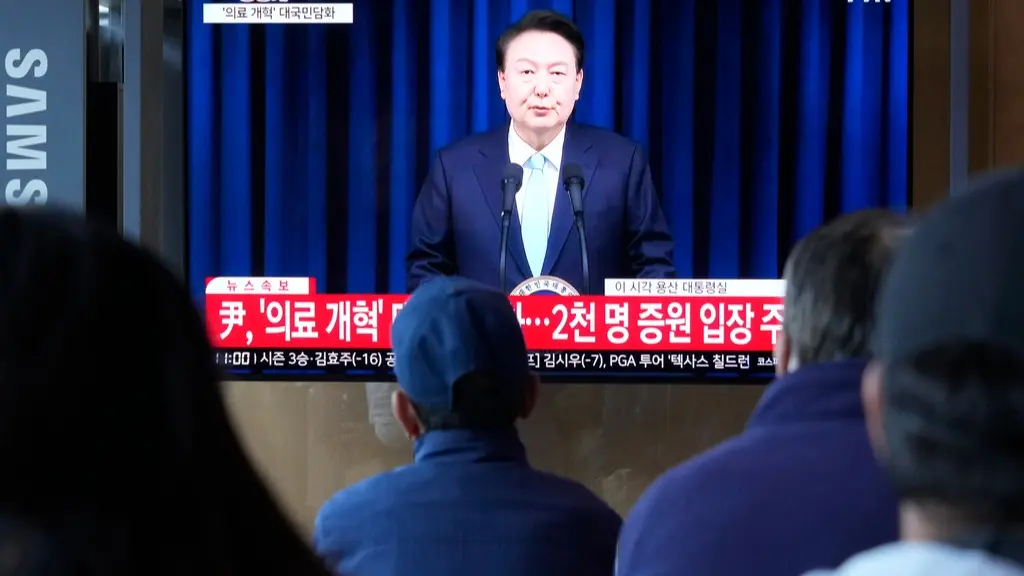Updated 3 December 2024 at 20:29 IST
Martial Law Declared in South Korea: Ruling Party And Opposition Vow To Block Declaration
Reports from South Korean media, Yonhap, indicate that the military has begun suspending parliamentary activities.
- World News
- 3 min read

In a surprising late-night address, South Korean President Yoon Suk Yeol declared martial law, citing the need to protect the country from North Korea’s communist forces and what he described as "anti-state elements" within the nation. Yoon's announcement came as the country faces increasing political instability, with tensions rising between the ruling party and the opposition.
The president claimed that martial law was essential to safeguard South Korea’s liberal constitutional order and to remove pro-North Korea forces from the country. However, he did not provide specifics on what actions would accompany the implementation of martial law or how long it would remain in effect.
What Is Martial Law?
Martial law is a temporary suspension of civilian governance, typically invoked during times of national crisis. Under martial law, military authorities take control, often suspending civil rights and imposing military law. While martial law is usually meant to be a short-term measure, it can sometimes persist for extended periods, depending on the situation.
Bipartisan Opposition to the Declaration
The declaration of martial law has sparked immediate criticism across South Korea's political spectrum. Both the ruling and opposition parties have condemned the move. Lee Jae-myung, the leader of the opposition Democratic Party, called the declaration unconstitutional, stressing that such a measure undermines the country’s democratic principles.
Advertisement
In an unexpected twist, Han Dong-hoon, the head of the ruling People Power Party and a member of Yoon’s own party, also criticized the move, describing it as "wrong" and vowing to block its implementation.
Context: Rising Tensions and Scandals
This unprecedented declaration of martial law comes at a time when President Yoon’s political authority has been significantly weakened. Following the opposition’s landslide victory in the most recent general elections, Yoon has struggled to pass legislation, often resorting to vetoing bills passed by the opposition-dominated parliament.
Advertisement
Compounding matters, Yoon’s presidency is embroiled in controversy, particularly regarding allegations of corruption against his wife. She has been accused of influence peddling, prompting the opposition to demand a special investigation into the matter. This scandal, coupled with the opposition’s recent actions to slash the government's budget and move forward with impeachment proceedings against certain cabinet members, has further eroded Yoon’s political power.
With his ability to block bills limited and his presidency under siege, Yoon has opted for the extreme measure of martial law, claiming it is necessary to restore order and prevent what he called "anti-state" forces from destabilizing the nation.
Military Suspends Parliamentary Activity
Reports from South Korean media, Yonhap, indicate that the military has begun suspending parliamentary activities. According to the Yonhap News Agency, members of the National Assembly have been banned from accessing the building, and footage circulating on social media shows a heavy police presence outside the assembly in Seoul’s Yeongdeungpo District.
This development marks a significant escalation in the political crisis. The suspension of parliamentary activity and the militarization of government institutions signal a shift towards more authoritarian measures, raising concerns about the future of South Korea’s democracy.
What Comes Next?
As martial law takes effect, South Korea is bracing for more political turmoil. The opposition has vowed to challenge the move, and the country’s military actions continue to draw attention both domestically and internationally. With the suspension of parliamentary activities and rising opposition against Yoon’s decision, it remains unclear how the situation will evolve in the coming days.
The declaration of martial law has thrown South Korea into a state of uncertainty, with questions about the country’s future governance and the preservation of its democratic values at the forefront of national debate.
Published By : Sagar Kar
Published On: 3 December 2024 at 20:25 IST
